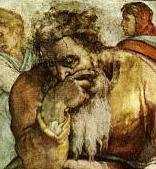
Americans love freedom and liberty. We hold it dear and we protect it literally with our very lives. But what exactly is liberty? I am a big Webster fan (not the little cute actor, the dictionary guy), especially when it comes to defining words for which we have long taken the meaning for granted. Here is how Webster defines liberty:
Function: noun
Inflected Form(s): plural -ties
Etymology: Middle English, from Anglo-French liberté, from Latin libertat-, libertas, from liber free -- more at LIBERAL
1 : the quality or state of being free: a : the power to do as one pleases b : freedom from physical restraint c : freedom from arbitrary or despotic control d : the positive enjoyment of various social, political, or economic rights and privileges e : the power of choice
2 a : a right or immunity enjoyed by prescription or by grant : PRIVILEGE b : permission especially to go freely within specified limits
3 : an action going beyond normal limits: as a : a breach of etiquette or propriety : FAMILIARITY b : RISK, CHANCEc : a violation of rules or a deviation from standard practice d : a distortion of fact
4 : a short authorized absence from naval duty usually for less than 48 hours
synonym see FREEDOM
- at liberty
1 : FREE
2 : at leisure : UNOCCUPIED
Probably none of these definitions are a big suprise to anyone. I think #1 and #2 are specifically relevant to personal freedoms that we like to enjoy so I will focus on these. Also note that liberty and freedom are basically synonymous.
Definition 1a states, "the power to do as one pleases". Upon reading this, I instantly think of things that I certainly DO NOT want people doing (whether it "pleases" them or not), like selling dangerous narcotics, preying on children sexually, etc. It is probably safe to assume then that liberty does not mean doing whatever you want, whenever you want. Anyone who believes in absolute freedom of this kind I am guessing has never been assaulted or had their goods stolen. At best they are not being realistic, at worst they are of the type that wishes to commit these acts without restraint.
Using this argument, I am persuaded that, at least for the purposes of this discussion, definition #1 should be discarded and we should focus on #2:
2 a : a right or immunity enjoyed by prescription or by grant : PRIVILEGE b : permission especially to go freely within specified limits
So now freedom and liberty is "granted" and we are given "permission" to be free. This will offend some who believe we are absolute free agents, freely roaming the earth doing what "pleases us". The problem with that is, when your enjoyment of what pleases you violates the freedom of another, it is not freedom anymore. I would say it is immorality.
I will offer that without morality, there can be no liberty because without a moral code or "specified limits", freedom ceases to be free. Here are two quotes that nicely sum up this thought:
"Only a virtuous people are capable of freedom. As nations become more corrupt and vicious, they have more need of masters." - Benjamin Franklin
"Can it be that Providence has not connected the permanent felicity of a nation with its virtue?" - George Washington
The question then becomes, who decides for me what is permissible? Who grants me certain rights? Who says what is moral?
Some would say it is the role of government to grant rights to people and decide how those rights should be used, but I disagree. I believe it is the role of government to protect my liberties or rights from being encroached upon. I think the founders of this country would agree:
"We hold these truths to be self-evident, that all men are created equal, that they are endowed by their Creator with certain unalienable Rights, that among these are Life, Liberty and the pursuit of Happiness. — That to secure these rights, Governments are instituted among Men, deriving their just powers from the consent of the governed, — That whenever any Form of Government becomes destructive of these ends, it is the Right of the People to alter or to abolish it, and to institute new Government, laying its foundation on such principles and organizing its powers in such form, as to them shall seem most likely to effect their Safety and Happiness." - The Declaration of Independence
This quote hits on exactly what I am getting at with this post: that the natural liberties we have are a gift from our Creator and that it is the job of government to preserve them by restraining those who would like to violate them. This is done primarily by enacting a moral code or system of laws. If this is insufficient to deter some, then punishment becomes necessary to further deter and/or restrain the violator.
So I will summarize by stating that without a Creator, there can be no real freedom; and where one desires to protect liberty, a moral code must be established.
"Those who will not be governed by God, will be ruled by tyrants." - William Penn


